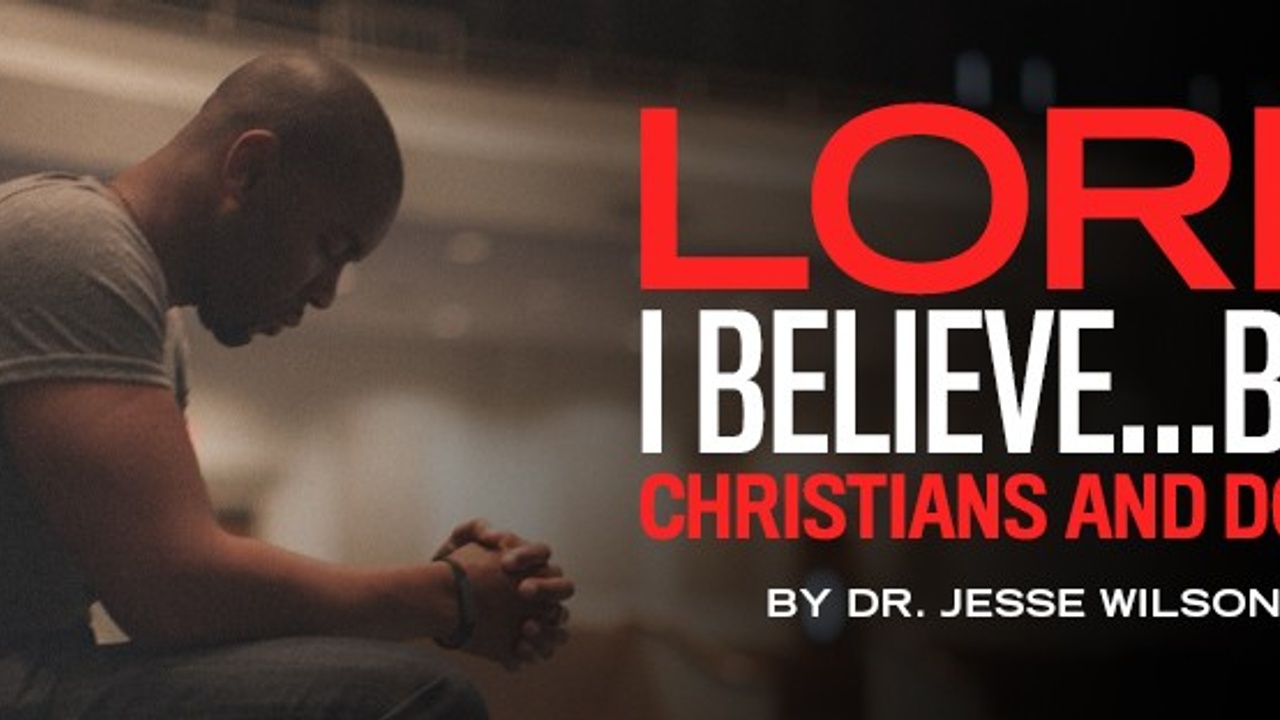
In 2017, the Barna Institute conducted an important study that revealed that 2/3 of Christians report they’ve experienced doubt….I assume the other 1/3 were either lying or misunderstood the question. Because if you are seriously pursuing God, and you never run into doubt, as my former teachers would say, “you might not be applying yourself!”
Doubt is no respecter of Christians. It shows up in the lives of new believers and mature believers alike. Don’t believe me? Come with me to a going away party at Galilee. 11 disciples were there. Peter was there. So were Matthew, Mark, Luke and John. They were listening to one last message from Jesus before his ascension.
This group had seen it all. They had heard it all. Signs. Wonders. Miracles. Resurrections. But even as they received their final commission from Jesus, we read something amazing in Matthew 28:17, “And when they say him, they worshipped him; but some doubted.”
Some what? Some doubted. Now if there should have ever been a doubt free zone, that should have been it. But this group, the group that would later turn the world upside down, experienced doubt.
How did Christ respond to doubters?
The fact that the disciples were troubled with doubt came as no surprise to Jesus. He reads the heart. So how did he respond to his doubting disciples? He taught, he encouraged, he commissioned, and he left. Not a word about it. And how did he respond to other doubters?
- In Luke 7 when John the Baptist doubted him, Jesus said, “Tell John about the miracles you’ve seen and heard.”
- In Mark 9 when a distraught father cried out, “Lord I believer…help my unbelief!”, Jesus healed his son.
- In Luke 24 when the Disciples were doubting that he was a real man, Jesus said, “Watch me eat this fish.”
- In John 20 when the doubter himself, Thomas, questioned whether Jesus really rose from the grave, Jesus said, “Touch my hands and feet. Put your hand in my side!”
All disciples. All doubters. Not one word of condemnation from Jesus. Doubt is not only not a sin, it’s a part of the human condition. And rightly understood, it can be extremely helpful.
Let me share a few more points about Christians and doubt.
There is a BIG difference between doubt and unbelief
It’s important to define terms. The Greek word that we commonly translate doubt, distazo, is not a settled unbelief, but a wavering or uncertainty. It has been described as an open-minded uncertainty. Unbelief on the other hand is a close-minded certainty. Doubt is open to God’s guidance. Unbelief is not. Doubt is searching for answers. Unbelief is confident the answer is nowhere to be found.
Be a Berean
The Bereans were commended in Acts 17:11 for examining and scrutinizing the word of God delivered to them by Paul and Silas. They didn’t just take for granted that what they heard was true. In this mis-information age, we need to have that same attitude. This type of healthy skepticism can lead to a much stronger faith.
Real faith has substance
Faith is defined in Hebrews 11:1 as having substance and evidence. It is far more than a feeling; it is grounded in “infallible truths.” Acts 1:3. If your beliefs cannot stand the glare of close examination and scrutiny, then they may not be your beliefs at all.
Unresolved doubts can be deadly
Doubts may not be sin, but they can lead to sin – if ignored. Doubts may be different from unbelief, but they can lead to unbelief – if ignored. Examine your doubts to understand what they are seeking or signaling. Follow that examination with prayer and serious study for the answers that you need. And this type of examination is too important to do alone. Ask for help.
Finally, Tim Keller has some helpful advice that I actually revised and expanded this week in a post, “A faith without some doubt is like a human body without any antibodies in it. People who go through life too busy or indifferent to ask hard questions about what they believe will find themselves defenseless……” He’s right.
So, what do you think? Have you ever wrestled with doubt? If so, how did you deal with it?

